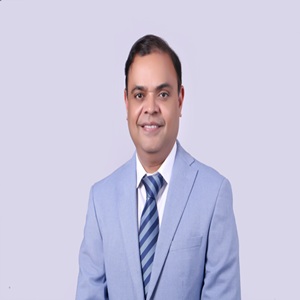Crack the HR Code: Talent Strategies to Get Hired by Top HR Leaders
 Manoj Pandey brings over three decades of experience in aligning HR with business goals to drive innovation and employee satisfaction. With deep expertise in HR operations and shared services, he leads initiatives that strengthen organizational communication, engagement, and global presence in an ever-evolving corporate landscape.
Manoj Pandey brings over three decades of experience in aligning HR with business goals to drive innovation and employee satisfaction. With deep expertise in HR operations and shared services, he leads initiatives that strengthen organizational communication, engagement, and global presence in an ever-evolving corporate landscape.
In today’s competitive job market, cracking the HR interview goes far beyond showcasing technical skills or fitting into a company’s culture. It requires aligning your preparation, mindset, and communication with what seasoned HR leaders seek—often elements that are not explicitly stated in the job description.
With over 30 years of experience hiring candidates from top-tier institutions like IITs and IIMs to Tier 2 and 3 colleges, across functions including Management, Technology, Marketing, HR, Finance, SCM, and more, I’ve come to realize that the HR round is the most nuanced and revealing phase of the selection process.
The Two-Stage Evaluation Process
Most top HR leaders evaluate candidates through two key stages: the initial impression and the final impression. Each phase is critical in determining whether the candidate not only fits the current role but also demonstrates the potential for long-term value.
Stage 1: The Initial Impression – The Silent Screener
The initial impression is often formed before you formally interact with the HR team. This stage involves subtle observations that provide early cues about your suitability.
For starters, originality in resume writing is a key differentiator. Resumes that tell a personal story, rather than using templated jargon, stand out. Academic performance is evaluated not just for final year marks, but also by a consistent record of achievement starting from school.
Time management is inferred through punctuality and responsiveness throughout the application process. Your overall appearance, including grooming and attire, reflects your respect for the opportunity. Even your behavior with fellow students—how respectfully and collaboratively you engage—speaks volumes.
Finally, inputs from the technical or functional panel help assess your domain readiness and learning agility, which HR uses to complete the early profile assessment.
Stage 2: The Final Impression – The HR Leadership Round
This is the decisive stage where top HR leaders interact directly with candidates. The evaluation here goes beyond standard questions—it’s a deep dive into your personality, thinking, and potential.
The first expectation is clarity and ownership of your resume. Any claim must be substantiated. Candidates are also expected to understand the job description and know basic facts about the company.
When asked to introduce yourself at the beginning, it’s important to strike a balance—neither under-informing nor over-sharing.
We then explore your basic domain knowledge through functional questions. What sets top candidates apart is their awareness of the domain, global trends in their field and how they keep up with changes.
An understanding of Geo-Political issues and their business implications is increasingly valued. We assess thought clarity through your ability to express original ideas in a structured way, and articulation is measured by how clearly you convey them.Avoid any form of bias—whether political, regional, or otherwise.
Honesty is extremely important. Saying ‘I don’t know’ when appropriate, shows maturity and completely acceptable. HR professionals appreciate authenticity. We also look for curiosity about our organization — candidates should ask thoughtful informationn, not readily available in public domain. This reflects not only preparation but genuine interest.
Emotional intelligence is assessed through your composure and reactions under pressure. Are you actively listening before responding? Are you engaging with all panelists? Can you smile naturally and stay positive? Are you taking notes if multiple questions are asked rapidly? Can you clearly articulate your strengths and weaknesses? Do you have a defined ambition aligned with your long-term aspirations?
We appreciate students who demonstrate follow-through by checking back on their application status after a week or so, directly or through appropriate channel. These subtle actions leave lasting impressions.
HR professionals are long-term talent partners. We often assess whether a candidate can grow with the organization and become a role model for others. Qualities like humility, self-awareness, curiosity, clear thinking, and adaptability are often more valuable than a long list of certifications.
Cracking the HR code is not about memorizing the right or standard answers or checking every box. It’s about bringing your authentic, capable, and coachable self to the table. Every interaction - spoken or unspoken during the interview is an opportunity to demonstrate that you are not only prepared for the immediate role but also for the journey ahead.
So, prepare sincerely, think clearly, and act genuinely because the best HR leaders aren’t just looking to fill a vacancy, they are looking to invest in future leaders. And they’ll be the happiest to know that you’re thriving in your career and proud to say they gave you your first big break. After all who doesn’t want to take a credit!

